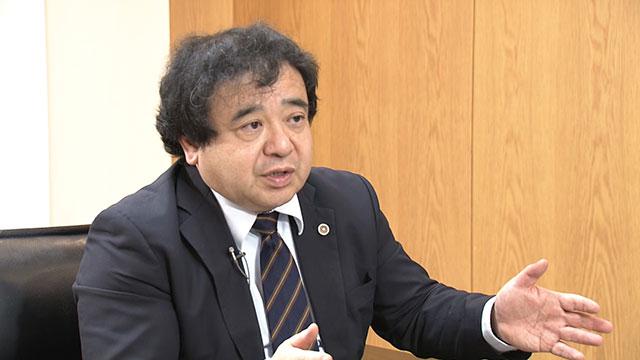Prohibited from getting married
Thirty-year-old Samean Keo is a technical trainee from Cambodia. She came to Japan two years ago to learn sewing techniques. Keo is in a relationship with a man she met in Japan. When she told her employer that she wants to marry her partner, she got an unexpected reaction. She says, "The company president told me I wasn't allowed to get married. I was told the company would no longer be able to employ me, and that I would have to return to Cambodia."
According to Japanese law, trainees can continue their internship regardless of their marital status, but the company laid her off.

The marriage was not the only problem Keo had with her company. She says their dormitory rules limited her personal freedom. She says, "We were not allowed to interact with people outside the company. Our lack of human rights made me sad."
When she was fired last year, Keo had nowhere to go. She now lives in a shelter run by a support group for trainees.
She was helped by Zhen Kai, the director of a local labor union. Zhen came to Japan from China decades ago. Now he advises trainees on labor-related issues. He says that in recent years, he's seen a sharp rise in complaints related to personal freedom.

Zhen met with Keo's former employer to find out why her marriage was a problem. "The CEO maintains that trainees are supposed to come to Japan to acquire certain skills, and that getting married changes the purpose of their stay. The company is convinced it has valid reasons," Zhen said after his visit.
In response to an inquiry from NHK, the company claimed it had learned from an official organization that Keo's marriage would change her visa status, and that she may not be able to continue working.
The reason for restrictions
NHK interviewed a broker involved in bringing foreign trainees to Japan. He agreed to speak on condition of anonymity.
He says, "Things changed after some trainees quit abruptly. Now, employers want to limit the information trainees can get from other foreign trainees and international students."
Some employers worry that by interacting with other people, trainees might learn about better working conditions and quit their jobs.
The broker says some trainees are forced to agree to restrictive terms before they come to Japan.
"These agreements specifying what's forbidden are handwritten and kept by the brokers. We all know it's illegal, but the practice continues as a kind of unspoken rule," he says.
Possible solutions
In March, Japan's Justice Ministry published an announcement for host companies, stating it is illegal to impose restrictions on the private lives of trainees.
But Shoichi Ibusuki, a lawyer who specializes in foreign labor issues, believes the announcement is not enough. He says Japan should pressure other countries to impose tighter controls on brokers. He says, "Japan could sign bilateral agreements with partner countries to ensure that the trainees' rights are respected. If brokers in those countries demand deposits, penalties or other conditions that violate a trainee's human rights, their permit should be immediately revoked. In addition, Japan could also request partner countries to punish such brokers with fines."

Many unreported cases
Experts say Keo's case is just the tip of the iceberg. Some trainees told me that they aren't free to use a cellphone, and their passport is sometimes confiscated by their employer. I also heard about a case where a company urged a pregnant trainee to have an abortion because it didn't want to give her maternity leave. All of this is illegal in Japan.
The problem is the trainees themselves are reluctant to file formal complaints because they're afraid of losing their position. That makes it difficult for authorities to identify cases of abuse. A lot depends on how companies choose to treat their trainees.
The Japanese government needs to take action to ensure a proper working environment. If nothing is done, these foreigners might choose to work in another country. That would have negative consequences for Japan.

